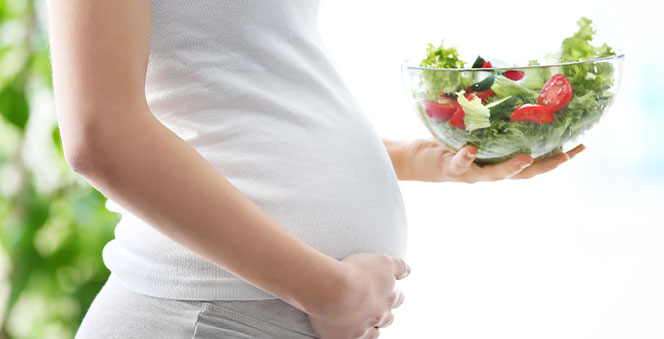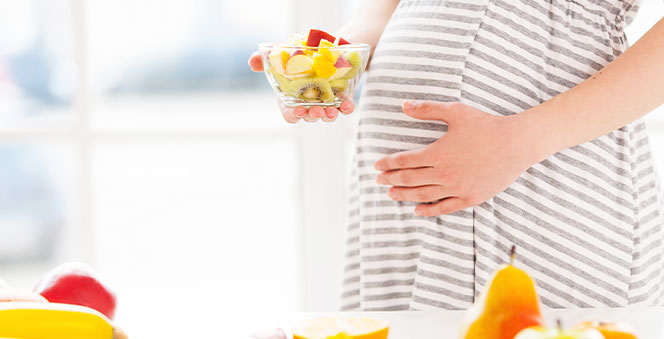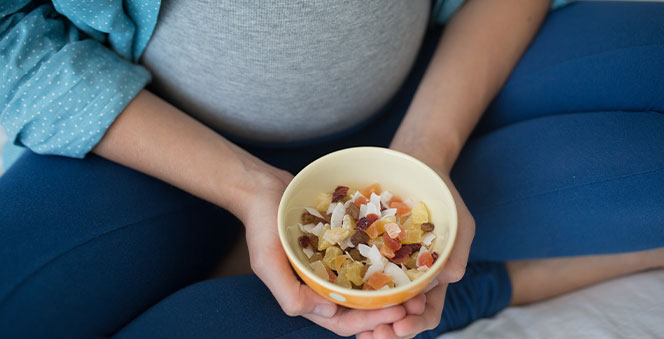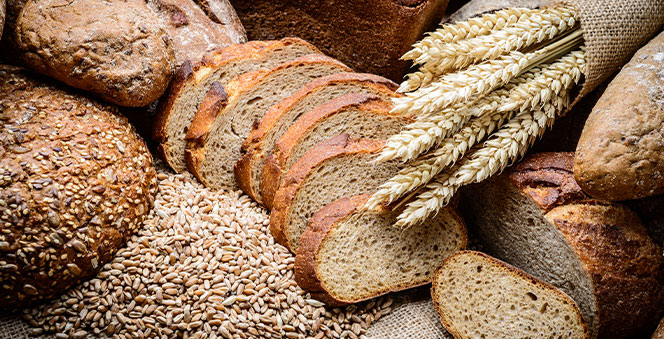At the point when we allude to diet during pregnancy, we do not recommend limiting calories or attempting to get in shape. Abstaining from excessive food intake to get slimmer during pregnancy can be unsafe for you and your child, particularly since a weight reduction routine may limit the intake of crucial supplements, for example, iron, folic acid, and other significant nutrients and minerals. The sort of diet we urge during pregnancy alludes to calibrating your dietary patterns to guarantee you are getting sufficient nourishment for the well-being of you and your child. A good pregnant diet is basic to your baby’s development and improvement. So as to get the supplements you need, you should eat from an assortment of nutrition classes, including foods grown from the ground, bread and grains, protein sources, and dairy items.
THE SEVEN DO’S OF NUTRITION DURING PREGNANCY ARE AS FOLLOWS:-
DO STACK UP ON THE “LARGE 5” SUPPLEMENTS: FOLATE, CALCIUM, IRON, ZINC, AND FIBER
Prior to conception and in the initial month and a half of pregnancy, no supplement is more crucial than folate (the engineered structure is folic acid). This B nutrient can decrease the danger of neural tube absconds, for example, spina bifida, by an astounding 70 percent.
You can get your daily requirement of 400 micrograms (600 micrograms is suggested in the first trimester) from beans and vegetables, citrus products of the soil, entire grains, dim green verdant vegetables, poultry, fish, and shellfish, however folate from nourishments isn’t also ingested as folic acid, so pop a pre-birth nutrient or folic acid enhancement for protection.
During pregnancy, you’ll need 1200 milligrams of calcium which can be obtained from low-fat dairy items, green vegetables, and orange juice and soy items—assumes a key job during the second and third trimesters, when your baby’s bone and tooth improvement arrives at its pinnacle. Since the baby drains calcium from your body, getting enough of this mineral can ensure your own bones, as well. Iron, significant for supporting your 50 percent expansion in blood volume, is critical in the third trimester. Focus on 30 milligrams every day.
Your zinc necessity increases by 50 percent to 15 milligrams every day when you’re pregnant. Zinc inadequacies have been connected with birth absconds, limited fetal development, and unexpected labor. Albeit nuts, entire grains, and vegetables are acceptable sources, the mineral is best retained from meat and fish.
Fiber (found in natural products, vegetables, and entire grains) is especially fundamental for your own well-being. It forestalls decrease obstruction, a typical pregnancy grievance that can prompt hemorrhoids, and it causes you to feel more full more; focus on 25 milligrams to 35 milligrams per day.
DO EAT A VARIED RANGE OF FRUITS
Eat plenty of fruits and vegetables, at least five portions a day. Each portion should be the size of a good adult handful, but preferably more. Eat vegetables and fruits of different colors white, orange, purple, yellow, etc. Aims to eat a rainbow for a healthy pregnancy!
DRIED FRUITS
Dried fruits are enriched with fiber, various vitamins, and minerals. One serving of dried fruit can provide a large percentage of the recommended intake of many vitamins and minerals, including folate, iron, and potassium.
Dates are rich in fiber, potassium, and iron. While prunes are rich in fiber, potassium, and Vitamin K. But remember, they contain a high amount of sugar also. So avoid candied variety.
Try adding a small portion to a trail mix with nuts and seeds for an on-the-go protein- and fiber-filled snack.
DO GET YOUR OMEGA-3 UNSATURATED FATS
Eating Omega-3-rich food can support your baby’s neurological and mental health before birth, likely prompting better vision, memory, and language appreciation in youth. It likewise may decrease your danger of post-pregnancy anxiety. Flaxseed oil, pecans, and omega-3-braced eggs are acceptable wellsprings of ALA, one of the three omega-3 fats, yet fatty fish are the main solid wellsprings of the two more significant omega-3s, EPA and DHA. Pregnant and nursing ladies get in any event 300 milligrams of DHA in their day-by-day pregnant diet.
DO PICK “DOUBLE DUTY” FOOD
Supplement-rich nourishments, for example, yogurt, nutty spread, chicken, eggs, and dairy items, are those that are higher in protein, calcium, and iron, all supplements your baby needs to develop and grow appropriately. Some other supplement-rich nourishments: Lean meat, which contains protein, alongside B vitamin, iron, and zinc; orange juice offers folate in addition to vitamin C, which helps in the absorption of iron from food, for example, fiber-rich dark beans and spinach; entire grains are loaded up with fiber, B vitamin, magnesium, and zinc.
LEAFY VEGETABLES
Leafy vegetables and fruits contain numerous significant supplements for pregnancy particularly, Vitamin C and Folic Acid. Pregnant ladies need at any rate 70 mg of Vitamin C every day, which is contained in organic products, for example, oranges, grapefruits, and honeydew, and vegetables, for example, broccoli, tomatoes, and Brussels sprouts.
To forestall neural tube damage, 0.4 mg of folic acid every day is suggested. A decent source of folic acid can be found in dark green vegetables (different sources of folic acid include vegetables, for example, dark or lima beans, and black-eyed peas). You ought to have at any rate, say, 2 servings of fruits or 4 servings of vegetables in your daily meals.
BREAD AND GRAINS
The body’s primary source of energy for pregnancy originates from the basic sugars found in bread and grains. Entire grain and advanced items give significant supplements, for example, iron, B Vitamins, fiber, and some protein, even. You can get the necessary measure of folic acid from braced bread and grain. Depending upon your weight and dietary needs, you ought to consume between 6-11 servings (6-11 oz) of bread/grains every day.







